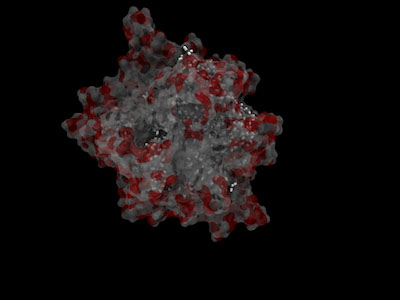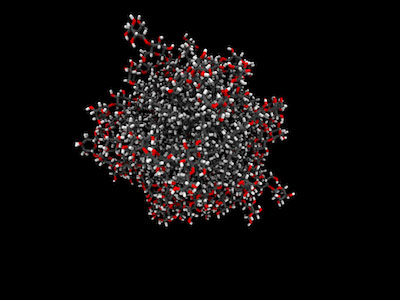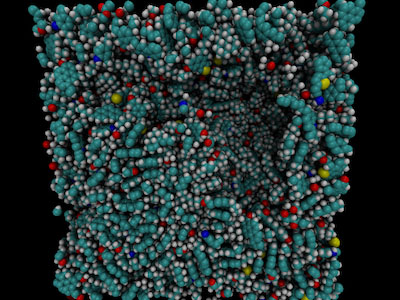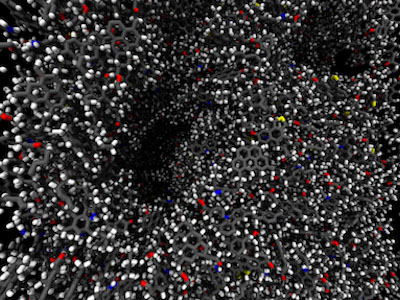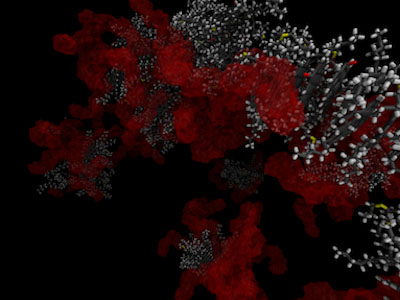At the COIFPM, researchers perform molecular dynamics and Monte Carlo simulations in order to probe petrophysical and chemical phenomena, wherein impact is governed by processes at the nanometer scale and smaller.
Models are typically designed to address fundamental questions and simultaneously provide insight that can be applied to improve relevant technologies, such as hydraulic fracturing, enhanced oil recovery and aquifer remediation. Some problems under current investigation include the following:
- Phase behavior and transmission of gas in ultra-tight, nanoporous shale
- Chemical pathways for facile graphene synthesis from Wyoming coal
- Dispersion of aggregated and surface-deposited asphaltenes
- Surfactant-mediated cleaning of contaminated oil-wet mineral surfaces
- Chemical interactions at solid-fluid interfaces affecting oil production during enhanced oil recovery processes.
The techniques involve flexible, state-of-the-art computational software and high-performance supercomputing that allows for the examination of uncommonly large length and time scales which are not possible at other research institutions. Using this technology, the computational chemistry program at the COIFPM is intended to provide in-depth descriptions of natural materials and fluid-rock chemistry that are essential for new innovations within the energy industry.
GALLERY
